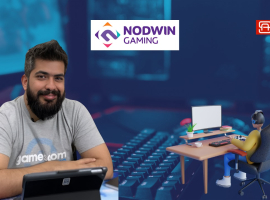Byju’s Conducts Strategic Asset Evaluation to Prioritize Core Business and Generate Cash Flow
Three points you will get to know in this article:
- Byju’s aims to focus on K-12 education, exam preparation, offline coaching, and profitable niches within these segments.
- The company is eager to revitalize its K-12 efforts, including coding platforms like WhiteHat Jr and Tynker, and is partnering with expert advisors for this strategic review.
- Byju’s has listed Great Learning and Epic for potential sale, aiming to secure about $1 billion, according to a source in the report.
According to persons familiar with the situation, Byju’s, India’s most valuable startup, is conducting a strategic evaluation of all assets acquired in the last few years in order to sell non-core subsidiaries and refocus its focus back to core, profitable industries.
According to the sources referenced above, Byju’s plans to target its efforts on K-12 education (kindergarten to class 12), exam preparation, offline coaching for K-12, and profitable niches relating to these segments.
The company is also interested in reviving K-12-related sectors such as code learning platforms such as WhiteHat Jr and Tynker. Byju’s is doing this strategy assessment in collaboration with experts. According to one of the individuals cited above, Byju’s, which has previously listed reading platform Epic and upskilling platform Great Learning on the market, anticipates making roughly a billion dollars from the sale. The corporation is focussing on developing its activities in India while it aims to keep only specific assets abroad.
The most prestigious startup in India, Byju’s, is currently in the process of carefully evaluating all the assets it has purchased over the past few years. Moneycontrol cited persons acquainted with the situation as saying that the corporation intended to sell off its non-core divisions and shift its attention back to its profitable core businesses.
Byju’s, an entity boasting over 30 subsidiaries, has set its sights on reinforcing its commitment to K-12 education (comprising kindergarten to class 12), test preparation, and offline coaching for K-12. In addition, it aims to nurture profitable niches closely associated with these sectors, as indicated by the aforementioned sources.
The company is also enthusiastic about rejuvenating its K-12-related endeavors, including platforms for learning to code, such as WhiteHat Jr and Tynker. To execute this strategic reassessment, Byju’s is collaborating with expert advisors.
Byju’s has already listed its upskilling platform, Great Learning, and the reading platform, Epic, for potential sale, with expectations of garnering approximately one billion dollars from the transactions, as per one of the individuals cited in the report.
In a bid to further strengthen its operations within India, the company is inclined towards retaining only specific assets abroad. A second individual quoted in the article emphasized the necessity for Byju to streamline its operations, viewing this move as a significant step in that direction. The vision is for Byju to transition away from its previous expansive edtech model.
In its prime, the company soared to unprecedented heights, securing a staggering $6 billion in both equity and debt, while orchestrating a remarkable series of over 15 acquisitions, amassing a total valuation of $3.5 billion. Byju’s extraordinary acquisition spree at one juncture even became a source of amusement on social media, with many playfully speculating that the edtech behemoth might set its sights on acquiring government-operated school boards next. Noteworthy additions to its portfolio during this prolific period encompassed Aakash Educational Services, the U.S.-based Tynker, WhiteHat Jr, Osmo, Great Learning, Epic, Toppr, and several others.
Byju’s has recently embarked on a strategic review of its subsidiary entities, a move closely aligned with the company’s pressing imperative to fortify its financial standing. This urgency stems from immediate liquidity challenges and the ambitious goal of repaying the entire $1.2 billion term loan B, secured in November 2021, within the coming half-year.
On September 11, the company submitted a proposed amendment to its lenders, outlining a robust plan to settle the full loan amount in under six months. Additionally, they’ve committed to disbursing $300 million within the next three months, contingent on the lenders’ acceptance of this proposal.
Byju’s has been actively seeking fresh funds since the beginning of the year, but they haven’t sealed the deal just yet. This has led the company to explore alternative strategies for bolstering their finances. However, an insider with knowledge of the situation has revealed that Byju’s fundraising efforts are still on course, with sovereign wealth funds from the Middle East expressing keen interest in joining the funding round.
In parallel, Byju’s is in talks with Davidson Kempner, an asset management firm based in the United States. In May, Davidson Kempner extended a $250 million loan to Byju’s through structured debt, using the future cash flows of Aakash Educational Services, one of the largest assets in the edtech giant’s portfolio, as collateral. However, approximately $150 million of this loan was held back by the US-based asset management company due to complications arising from Byju’s negotiations with its lenders.
Adding to the complexity, Byju’s encountered a technical default on the Davidson Kempner loan. This situation prompted Byju Raveendran to initiate fundraising efforts aimed at repaying the loan. The primary motivation was to prevent losing control of his most valuable asset, Aakash Educational Services, for which Byju’s had offered shares as collateral to secure the Davidson Kempner loan.
Byju’s, founded a little over a decade ago by the former teacher Raveendran, achieved remarkable heights in March 2022. At that time, they successfully secured a staggering $800 million in funding at a valuation of $22 billion, solidifying their position as India’s most valuable startup.
Byju’s, India’s leading edtech startup, is undertaking a strategic realignment by divesting non-core subsidiaries and refocusing on its profitable core sectors, particularly K-12 education. This move is driven by financial imperatives and the goal of repaying a significant term loan, reflecting Byju’s commitment to its long-term sustainability and growth.




